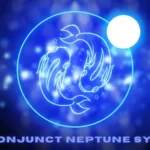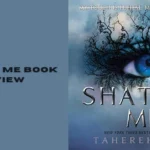Introduction to the role of music in film
Music is the heartbeat of any film. It sets the mood, drives emotional responses, and enhances storytelling in ways that visuals alone cannot achieve. In the world of cinema, every note played can evoke a range of feelings—from joy to sorrow, tension to relief. For thesis films that need composers—those powerful narratives often created by aspiring filmmakers—the right soundtrack can make all the difference.
These student projects may lack big budgets and star-studded casts, but they offer a unique opportunity for creativity and innovation. Yet too often, these films overlook an essential element: music composition. When you pair compelling visuals with original scores crafted by talented composers, you transform ordinary stories into unforgettable experiences.
In this exploration of thesis films that need composers, we’ll dive into why music is vital for these cinematic creations and how it can elevate their impact significantly. Whether you’re a filmmaker looking to enhance your project or someone interested in understanding the intricate relationship between sound and vision in film, there’s much to discover about this dynamic partnership.
Why composers are important for thesis films
Composers play a crucial role in elevating thesis films. Their music sets the tone, enhances emotions, and creates an immersive experience for viewers.
A well-composed score can transform a simple scene into something memorable. It guides the audience’s emotional response, making them feel joy, sadness, or tension at just the right moments.
In many cases, thesis filmmakers are working with limited resources. A skilled composer can make their work shine without requiring expensive effects or elaborate visuals.
Moreover, collaboration between directors and composers fosters creativity. This partnership often leads to innovative ideas that enhance storytelling.
As students strive to convey deep themes and messages through their films, having a compelling soundtrack becomes essential. The right music not only complements visuals but also amplifies narrative depth significantly.
The impact of music on storytelling and emotion
Music is a powerful narrative tool. It shapes how audiences perceive scenes and characters. A well-crafted score can heighten tension, evoke nostalgia, or amplify joy.
Think about the subtle interplay between visuals and sound. The right melody can turn an ordinary moment into something extraordinary. Imagine a heartfelt scene without music—it often falls flat.
Composers possess the unique ability to tap into emotions that dialogue alone cannot convey. They create an atmosphere that pulls viewers deeper into the story’s world.
Through crescendos and silences, music guides emotional responses, encouraging us to feel what the characters are experiencing. These sonic layers enrich storytelling in ways that linger long after credits roll.
For thesis films that need composers, this synergy between sight and sound becomes essential for impactful storytelling. Music transforms narratives from mere sequences of events into resonant experiences that connect with audiences on multiple levels.
ALSO READ : Steve Lee 29649: Unveiling the Mystery Behind the Name
Examples of successful thesis films with powerful soundtracks
Several thesis films have made a mark through their compelling soundtracks. One standout is “A Single Rose,” which intertwines delicate piano melodies with ambient sounds, enhancing the film’s emotional core. The music elevates each scene, drawing viewers deeper into the protagonist’s journey.
Another remarkable example is “Chasing Shadows.” Its orchestral score captures the tension and urgency of its narrative. Each crescendo mirrors key plot points, making audiences feel every twist and turn.
“Reflections,” a documentary short, pairs haunting strings with evocative visuals of nature. This combination creates an immersive experience that lingers in memory long after viewing.
These films demonstrate how powerful soundtracks can transform storytelling. They show that when music aligns perfectly with visuals, it leaves a lasting impact on the audience’s heart and mind.
Tips for finding the right composer for your film
Finding the right composer for your thesis film can feel overwhelming. Start by defining the mood and tone you want to convey. This clarity will guide your search.
Explore composers’ previous work through online platforms like SoundCloud or YouTube. Listen closely to their styles, versatility, and how they evoke emotion with sound.
Networking is key. Attend local film festivals or music events where composers may be present. Building relationships can lead to collaborations that benefit both parties.
Don’t hesitate to reach out directly but be concise in your communication. Share your vision clearly so they can envision themselves contributing effectively.
Consider budget constraints early on. Many talented emerging composers are looking for opportunities and might fit within tighter budgets without sacrificing quality.
Trust your instincts when choosing a composer whose passion aligns with yours; this synergy often leads to incredible musical results in film storytelling.
ALSO READ : First Lie Wins: A Reese Book Club Pick and Adaptation Triumph
The collaboration process between director and composer
Collaboration between a director and composer is a delicate dance. It requires trust, communication, and shared vision. Each brings their expertise to the table.
Directors often have a specific narrative in mind. They articulate emotions they want to evoke through music. This initial discussion sets the tone for the entire project.
Composers dive deep into the script. They analyze characters, themes, and key moments that need musical support. From there, ideas start flowing back and forth.
Feedback sessions become crucial as drafts are created. The director offers insights while composers adapt melodies or rhythms to enhance storytelling.
Sometimes breakthroughs happen unexpectedly—a melody may spark an idea for a scene’s pacing or emotion dynamics.
Through this interplay of creativity, magic emerges on screen. When both parties align their artistic visions, powerful soundscapes elevate thesis films in remarkable ways.
Conclusion: The power of music to elevate a thesis film’s message and impact
Music is not just an accompaniment; it’s the heartbeat of a film. For thesis films that need composers, this collaboration can transform a simple story into an unforgettable experience. The right score enhances emotional depth and amplifies storytelling nuances.
When you think about iconic scenes in cinema, many are defined by their music. It’s no coincidence that successful thesis films often have powerful soundtracks that resonate with viewers long after the credits roll.
As filmmakers embark on their creative journeys, finding a talented composer should be a priority. A well-matched partnership between director and composer can lead to innovative ideas and artistic breakthroughs. Together, they can craft moments that linger in the audience’s mind.
The impact of music on film cannot be understated. It elevates narratives, enriches character arcs, and creates lasting memories for audiences everywhere. By focusing on this crucial aspect early in production, aspiring filmmakers can ensure their thesis films achieve new heights of emotional resonance and artistic expression.
ALSO READ : Defstartup Org: Merging Gaming with Tech Entrepreneurship
FAQs
What is “thesis films that need composers”?
“Thesis films that need composers” refers to student films seeking skilled composers to create original scores. Music in these films amplifies emotion and storytelling, enriching the overall cinematic experience.
Why are composers essential for thesis films?
Composers are crucial as they enhance the emotional depth and narrative of thesis films, guiding the audience’s emotional journey with music that aligns with the film’s mood and message.
How does music impact storytelling in film?
Music deepens emotional engagement and heightens tension, nostalgia, or joy. It complements visuals, making scenes more memorable and immersive, helping audiences connect with characters and themes.
Can you provide examples of thesis films with great soundtracks?
“Chasing Shadows” and “A Single Rose” are examples of thesis films where powerful soundtracks played a pivotal role in enhancing the story and creating emotional depth, making them unforgettable.
How can I find the right composer for my thesis film?
Start by defining your film’s tone and budget, then explore composers’ portfolios online. Networking at film festivals or music events can help you connect with composers whose styles match your vision.







